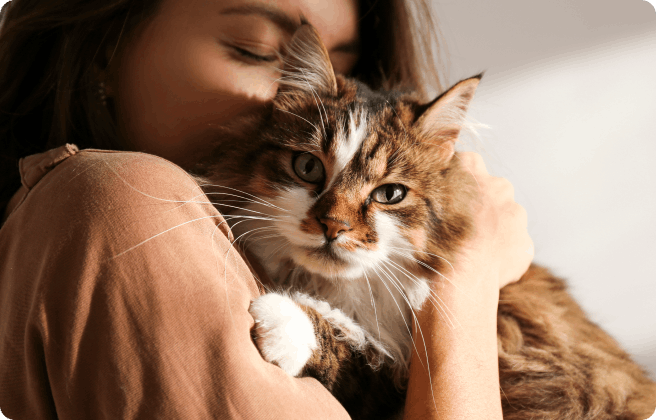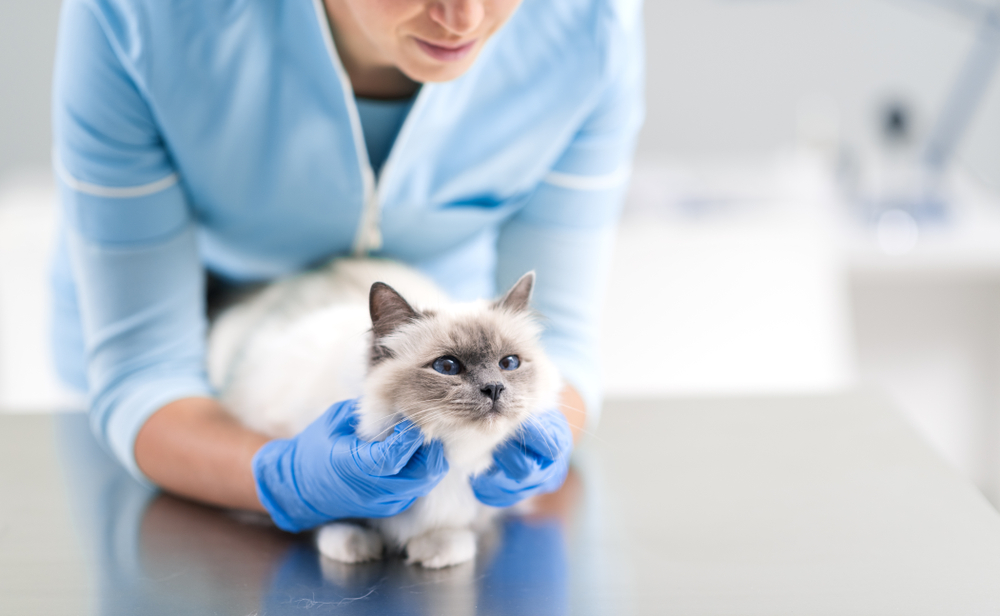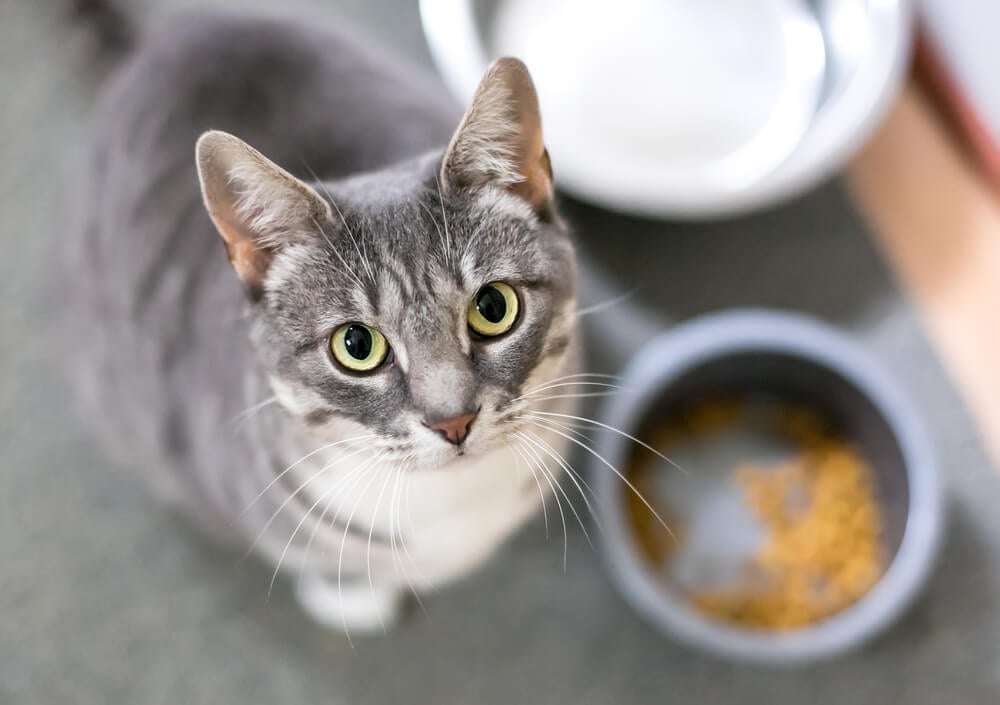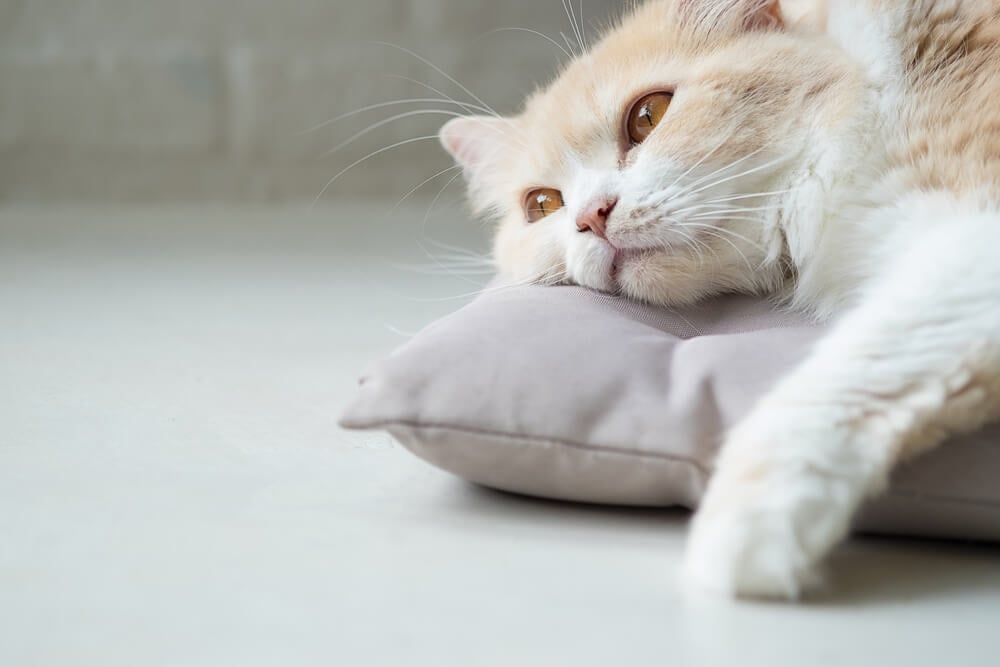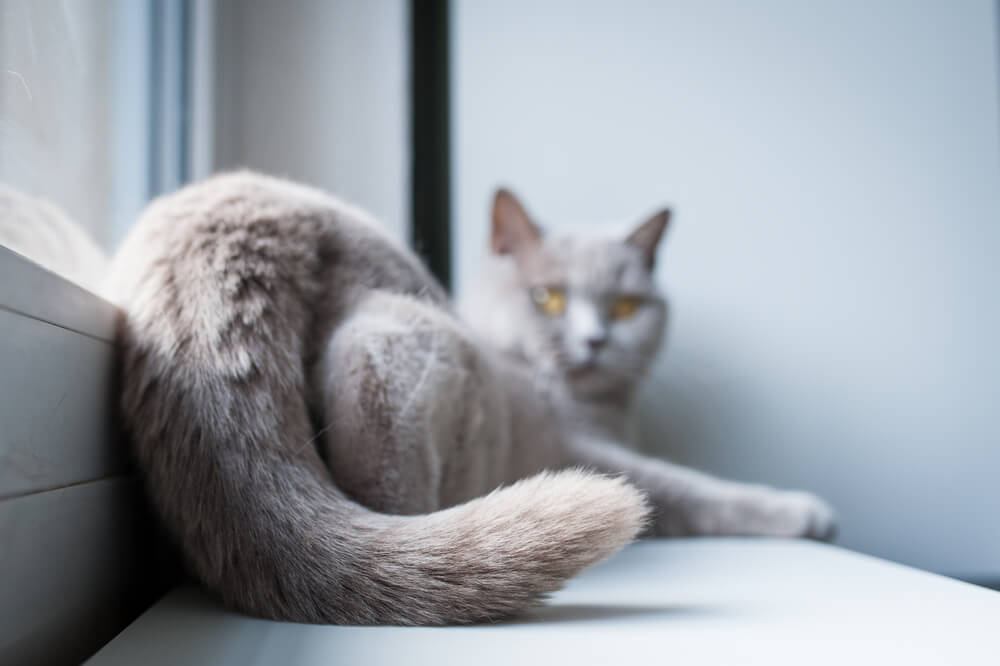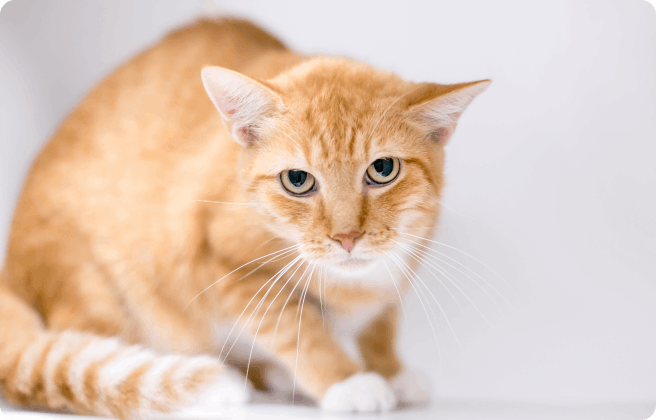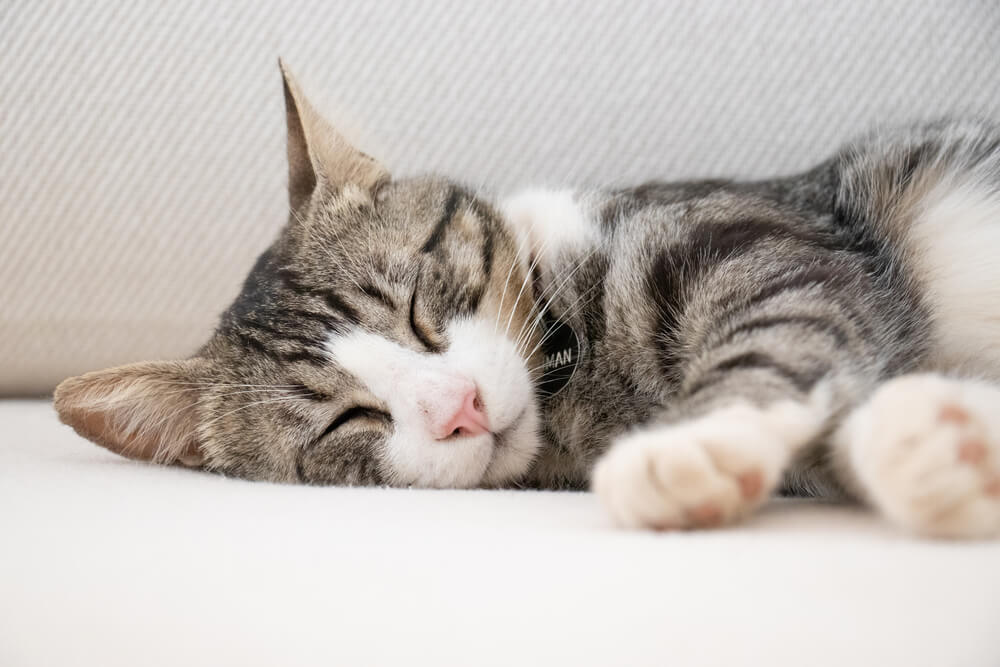
If you’ve ever wondered why it feels like your cat spends more time in dreamland than in the real world, you’re not alone. Cats have mastered the art of catnaps, and their sleepy habits can leave pet parents curious about their furry friend’s energy levels.
However, most of the time, your cat’s love affair with sleep is perfectly normal, especially if they’re soaking up the sun. But, why do they need so much sleep, and how do you know if their excessive catnaps signal the sign of illness?
This article will guide you through cats sleeping patterns, helping you distinguish between normal cat napping and signs of potential health issues.
How many hours a day does a cat sleep?
Naturally, the amount of time a cat sleeps depends on their life stage:
- Kittens, like all babies, will likely sleep most of the day, with a few brief bursts of cute energy between meals.
- Teenage cats may have erratic sleep patterns combined with periods of intense playfulness — typical teens!
- Adult cats usually have a more rigid sleep schedule which averages about 12 – 20 hours of sleep each day (usually around 15 hours.)
- Senior cats (those aged 10 and above) tend to have less energy and reduced mobility, so they are likely to sleep more than younger cats.
Why do cats sleep so much?
Cats sleeping patterns date back to their hunting days. They would sleep to conserve energy chasing, and killing their next meal. Although pet cats now get their meals handed to them (they have no idea how lucky they are), they still have these hunting instincts and will conserve energy for playtime, tree climbing, or whatever the day brings.
Catnaps
Unlike humans, cats don’t tend to sleep for long periods, instead, they take short 15-20mins naps. They probably aren’t in a deep sleep but these catnaps allow your cat to rest their body and mind yet still be ready to pounce on any potential threats nearby.
Your cat might be crepuscular
Cats are crepuscular animals, which means they’re most active at dawn and dusk. Therefore, if you notice your cat sleeping all day, this could be because they are awake at night. This probably explains why your cat is ready to take on the world in the early hours when you just want a lie-in. Try giving your furry friend a toy or something to do in bed to save them from waking you at sunrise.
Boredom
Your cat may sleep because they are fed up and bored. It’s important to provide them with playtime and stimulation throughout the day. Although sleeping isn’t much of an issue, boredom can lead to destructive behavior, constant meowing, or over-grooming.
Stressed
You know your cat best, and if you notice unusual sleeping patterns then it could be caused by anxiety or stress. As with humans, cats are affected by stress. Stress can be caused by several reasons including moving house, a new family member, or a new feeding routine. If your cat is suddenly sleeping more than usual, they might be overwhelmed and you may want to make adjustments to ease their anxiety.
Sickness or injury
Certain illnesses lead to your cat sleeping more, such as diabetes, liver disease, cancer etc. If you notice your cat is excessively sleeping and has other symptoms such as weight loss or loss of appetite, take them to the vet immediately.
Likewise, your cat may have hurt their paw or have picked up an infection that would make them sleep more. If you notice your cat not running around or in discomfort, take them to the vet for a check-up.
Where do cats sleep best?
Cats will usually find their best sleeping spot themselves. This could be a spot of sun in the middle of the kitchen floor, on top of the bookshelf, or curled on the sofa with you. It’s usually a quiet spot, often elevated so they can curl up and still be ready to take on potential threats.
When positioning their bed, place it in a quiet spot and try not to disturb them when they’re sleeping.
Do cats dream?
It is believed that cats enter the REM stage of sleep and dream just like us humans. They will most likely dream about something that happened that day such as snuggles with you, hunting a bird or mouse, or an incident that happened with another furry pal.
Is my cat not sleeping enough?
As you’ve gathered, cats sleep a lot so if you think they aren’t sleeping as much as they should be, pay attention to other behaviors from your cat. Without proper sleep, cats may become irritable or lethargic and it may even lead to serious health problems.
Ensure your cat is well-stimulated throughout the day and has quiet spots to relax in the home to try to improve their sleep. Diet could also be a factor and if they are not receiving a well-balanced, hydrating diet, this could harm their sleep. It’s important to visit or call the vet for advice if you are worried about your cat’s lack of sleep.
Is my cat sleeping too much?
So, your cat’s sleep routine might change now and then, and that’s pretty normal. But, if you’ve noticed your feline friend hitting the snooze button a bit too often, especially coupled with a lack of interest in food, it might be time to check in on their health. It could be a sign that something more serious is going on.
So, the next time you catch your feline friend catching some shuteye, rest assured that their nap is likely a testament to their overall well-being. Keep an eye on any changing behaviors or unusual symptoms but for now, why not join your cat for an afternoon nap?
Maybe there’s a valuable lesson we can all glean from our feline companions – the art of embracing a good, healthy sleep.
We uphold the highest editorial standards when creating the authoritative content pet parents rely on and trust.
Every piece of clinical content on the Cat Food Advisor is reviewed by our certified Veterinary Advisory Board, which consists of licensed veterinarians and medically certified specialists.
Our reviews are completely independent; we are not paid by any pet food company to promote their products favorably. We do not accept money, gifts, samples or other incentives in exchange for special consideration. For more information see our Disclaimer & Disclosure page.




